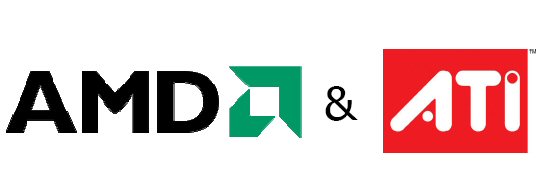AMD and ATI explain the reasons behind their merger
AMD looks to extend its processor expertise to challenge Intel on the desktop, and convince Dell to take them on

In the wake of the announcement of the merger between AMD and chipset and graphics powerhouse ATI, IT PRO sat down with AMD's chief administrative officer Thomas McCoy and ATI's EMEA managing director Peter Edinger to learn more about the deal - and what it'll mean for the industry.
It's all about the strategy - and that strategy is all about competing with Intel on the desktop. AMD needs to increase its volume sales, and the only way to do that is to get a bigger share of the desktop and mobile computing market (as well as moving into home entertainment equipment, and providing low-cost hardware for emerging markets).
That's where ATI comes in. As well as giving AMD access to its GPU technology, its experience in HDTV and PDAs will help AMD go beyond its usual marketplace.
McCoy sees the merger as offering the platform approach that large OEMs are requesting, and that AMD is "doing all the right things to be more attractive to Dell". Tier one OEMs like Dell, HP and Lenovo aren't the only players though, and Edinger sees the expanded AMD still working with smaller OEMs as well.
The markets may be concerned by the financial side of the deal, but McCoy remains bullish. While the acquisition may load up the balance sheet, AMD didn't want any dilution, aiming to have earnings growth as soon as the deal finalises.
He didn't see any problem reducing the resulting debt/capital ratio of around 36 per cent - as AMD's already had a track record of going from 40 per cent to 10 per cent in less than three years.
Get the ITPro daily newsletter
Sign up today and you will receive a free copy of our Future Focus 2025 report - the leading guidance on AI, cybersecurity and other IT challenges as per 700+ senior executives
Things certainly sound positive for both AMD and ATI, but the big question is how will Intel react to the merger? Edinger believes that ongoing anti-trust proceedings make it unlikely that Intel will make a spoiler bid for ATI, or try to merge with Nvidia, so AMD and ATI are betting on the status quo.
The final result should be more competition for complete desktop platforms. Perhaps this is that rare deal that will be good for everyone - especially with the graphics intensive Windows Vista just around the corner.
-
 Should AI PCs be part of your next hardware refresh?
Should AI PCs be part of your next hardware refresh?AI PCs are fast becoming a business staple and a surefire way to future-proof your business
By Bobby Hellard
-
 Westcon-Comstor and Vectra AI launch brace of new channel initiatives
Westcon-Comstor and Vectra AI launch brace of new channel initiativesNews Westcon-Comstor and Vectra AI have announced the launch of two new channel growth initiatives focused on the managed security service provider (MSSP) space and AWS Marketplace.
By Daniel Todd